![Use-this-one-LukeC106[577]](https://thewestsidegazette.com/wp-content/uploads/2018/02/Use-this-one-LukeC106577.jpg)
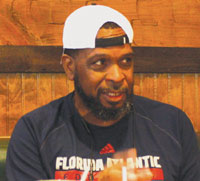
Black Owned Businesses Matter
An Exclusive Interview for the Westside Gazette with Luther “Uncle Luke” Campbell
By Rochelle Davis-Cox
Here in South Florida, we refer to him as Uncle Luke, the father of Miami Bass music. Back in the 80s, Campbell was a promoter, club owner, head of the record label, Luke Skyywalker, which later became Luke Records, and also known as the foul-mouth hype man of the X-rated rap group of its time, 2 Live Crew. If you grew up in South Florida in the 90s, you may remember Pac Jam club, where the hottest beats, fast dancing, and heart pumping moves, was the place to be when you came to Miami. It was there when we first heard about Trick Daddy on the single, “Scarred” and from there on Miami’s hottest rap/bass music became mainstream talk.
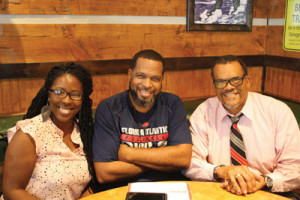
Let’s refresh your memory on how Luther “Uncle Luke” Campbell impacted change in our South Florida community. Although his lyrical content included foul-mouth talk, glorified provocative women, he also stood against unfair complaints against rap censorship and musical artist’s freedom of speech to the Supreme Court. While in the Supreme Court case against Campbell’s parody of Roy Orbison’s Pretty Women song, Michael Jackson and Dolly Parton also filed a brief against the case. In March 1994, the outcome ruled in favor of Luther Campbell! This meant freedom for not only rap culture, but for television and film for shows like Saturday Night Live, Dave Chappelle Show, and Def Jam affiliates. This case is the precedent case used to reference parodies on the internet. For our younger readers, this means the memes you share on social media would not be possible if it wasn’t for Campbell winning this case.
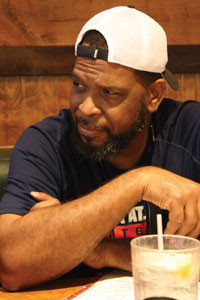 In 2011, Luther Campbell announced his intention to run for mayor of Miami-Dade County to impact change on making housing projects safer, community awareness in local government, and taxing strippers. He was 4th in a field of 11 candidates. Since then, Campbell’s action is still prevalent in Miami-Dade County with his involvement in youth sports, political awareness, and the rise of Black business matters.
In 2011, Luther Campbell announced his intention to run for mayor of Miami-Dade County to impact change on making housing projects safer, community awareness in local government, and taxing strippers. He was 4th in a field of 11 candidates. Since then, Campbell’s action is still prevalent in Miami-Dade County with his involvement in youth sports, political awareness, and the rise of Black business matters.
At the December 2017 Miami Funk Fest event, Camp-bell shared his 2018 Call to Action for South Florida: “We need to work closer together.” The purpose of the message is that we need to do more, we have to work together more as it relates to business. Campbell used the example of local restaurants, “when we look at places like Finga Licking in Miami, and now they’re in Bro-ward, we used to not see that in the 80-90s. When I was growing up it was like Miami businesses will stay in Miami, and Broward businesses in Broward.”
The importance of sup-porting Black owned businesses includes the fact that when we support a business we support that family. For instance, when we patronize a business that is Black owned, their child may be in college so their income is to fund that child to attend college, then that child obtains a college degree and is likely to repeat the cycle. Even if the owner does not have children, they are more likely to contribute back into their community and provide a resource.
Another issue that we face is the lack of support for one another. “It’s sad when we go elsewhere for business (lawyers, attorneys, mechanic, home improvements, etc.) that just sets us back 50 years, because when a child sees that you’re not doing business with each other, they’re likely to not do it either.”
As for Campbell, he assures he does his best to utilize his connections to shop with Black owned businesses, “I go to a Haitian shop for my tires, I eat breakfast or lunch at MLK, I take my clothes to black owned dry cleaners, any possible chance I get to support I will do it. Are there other businesses I have gone to, of course, but my efforts are to make sure I support black owned.”
Campbell’s wife, Kristin owns a WingStop ® in North Miami Beach, and is the agent who negotiated the contract of NFL running back, Devonta Freeman of the Atlanta Falcons to become the highest paid running back in the league. Since South Florida is also known for its talents in sports, especially in football, one would think the people of this community would be knocking her door down for her service, but the calls from elsewhere. Why? Because we are conditioned not to trust who we may not know. Obviously, she’s qualified. So what is the problem?
How do we reinforce investing in our community?
It is a mindset that we have to have. We have to develop circles. Campbell shared a story of when he was younger. He witnessed his father going to club meetings. In this club meeting, all the attendees had a business, and they all supported each other. He also recalled his conversation with an official about hiring African American political resources, and the need for local government to have more of us in positions to protect and understand our culture. Even when we look at our economic buying power, we are a force to be reckoned with and it is known, which also contributes to the control over community power.
When you look back at the integrating of schools, there was a plan in place. But did we have a plan? Since then, our culture got caught up in the likes of what was seen, the brand names. “We started buying the Gucci, Prada, and Louis Vuittons; it was all part of their plan. Back then, it was the cool thing to do”, Campbell stated. It was not intentionally for us, but we no longer gave the black businesses our business. We devalued our own quality of products, when we put more value and definition of standards based on white privilege.
How do you feel about the labeling of “Black” in relations to supporting business?
“We need to be more selfish… I like to use the term Rome wasn’t built overnight. We have to change our mindset.” People have to stop being ashamed of intentionally supporting your culture and your people. When you look around at different cultural representation of local businesses, now think of who they go to for their groceries, their clothing, their banks, or their dinner. Do you see those cultures lined up at your business? Now look at your local hair and beauty supply store, nail shop, convenience store. Who do you see lined at their business? Some business don’t have to announce their culture, because when they open shop in your neighborhood, they have already invested in your buying power to fund their college expenses, their growth in business locations, and their buying power.
“I build my wife up…I feel it’s important that we build up Black women. Despite the wild records that I made, I believe in that. I saw it growing up as my dad built my mom up. She owned her own business. My brothers and I all did the same. That will eventually impact our children.” Campbell stated.
In your book, The Book of Luke, My Fight for Truth, Justice, and Liberty City, you mentioned your uncle took you along to his job, how important is it that we do that with our children and is that something that halted our generational wealth tactic?
“We fell off big time. When we were younger, we had to go with our parents to mason jobs, construction jobs, and sometimes the work we did outside, is the same work we did at home. We learned trade from our parents. It’s not like that anymore because either we’re giving those jobs to others, or we’re more focused on being an athlete, or get lost into the street life and fast money. I’ll go in a club and speak to a woman (about goals) and ask her if she plans to retire doing this?” What happens when you’re 35-years old with no education when you’re dancing or being an athlete in NFL and are considered “old”? We have to develop plans that will set us for our future. *Congratulations to Lutheria Campbell, Campbell’s daughter, on becoming the Vice President of Luke Records.
I spoke to a few people that feel although we have networking events, we truly do not network or trust each other enough to do business together, how can we change that?
“I’ll give you an example of when I was trying to sell my own liquor. I met with distributors, then learned why our prices are higher. So I went to a few people with an idea. If we could buy chicken, and have connection to buy/sell in bulk to purchase at lower rates (buying power)…but no one called me back yet. And that’s the issue with us. Someone has the insight, but we don’t trust them. And our prices can be competitive to the Arab stores. Then you’re in the game. You’re not “in the game” if you only own 1 store. And now you can end up going out of business ‘cause his prices can beat yours.”
Here’s the part that really hit home for me. Campbell described his “circle of friends” as a business of like-minded individuals. In his circle are all business owners where if one person, for example, is a plumber, and no one in the circle uses his business or doesn’t use his business first, that person gets kicked out of the circle for not supporting their own. “It doesn’t matter how prestigious your business, home, or car may be we still take our car to my tire man in community” says Campbell.
As a person who also puts my money where my mouth is, I too like to surround myself with people who are about change and actually take action in #BuyBlack. I created a group on Facebook called “Broward County Black Owned Businesses” so people can have access to knowing where to shop within their community and buy Black. So there is no reason why we are not patronizing these stores when we are given these tools, along with advertisement in newspapers such as Westside Gazette newspaper, and owners who utilize their marketing and advertisement strategies to their communities for support. We have to change our mindset and that includes supporting each other, and not competing against each other. Too many of us have rather become popular for an idea, than partnering or supporting those that are already taking action. There is enough room and a bigger impact when we work together and for each other.
What are you working on next?
“Television and film. I just finished taping with Lebron James on a TV show that will air around August. I am Executive Producer on that. I also have some other work coming such as a movie based on my book, which will be through Lionsgate. And I also did a song working with Kenny G and Ron of Broward County which is a first for me, but I want to start taking more initiatives in working together (with local businesses)”, states Campbell. Be on the lookout, he is definitely aware of the need and necessity of Black Owned Businesses in South Florida and is taking action to impact change.
For more information on Broward County Black Owned Businesses and its impact on Social Media, contact Rochelle Davis-Cox at RochelleSMS@Outlook.com or call 954-940-2135.


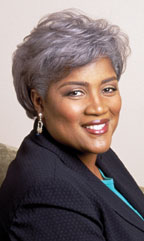
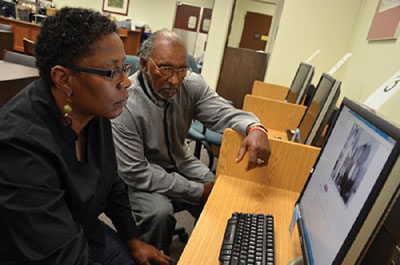
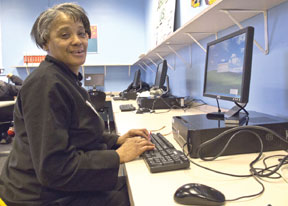
Be the first to comment